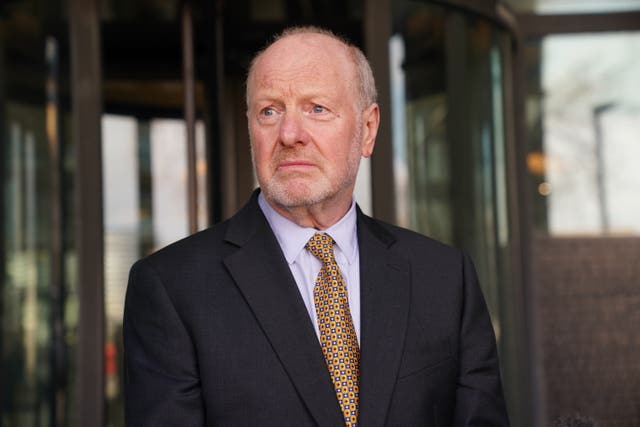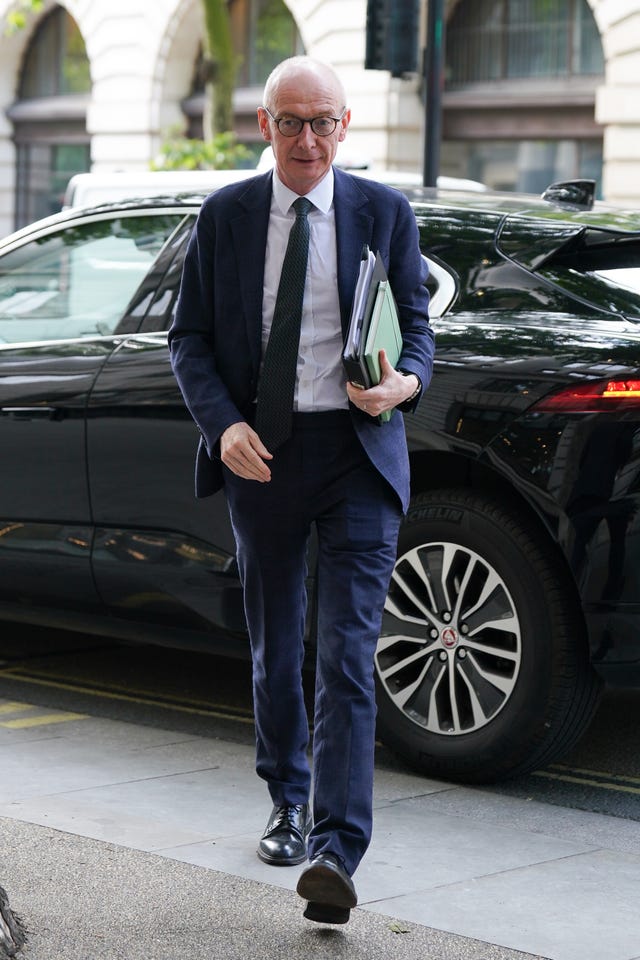Liberal Democrats leader Sir Ed Davey has apologised for his “poorly judged” and “terse” refusal to meet campaigner Sir Alan Bates for five months during his time as postal affairs minister.
Sir Ed, who was in the role between 2010 and 2012, said he dismissed the meeting proposal because he “followed the advice and did not question it”.
He denied that he eventually met Sir Alan in October 2010 due to “presentational reasons” despite a briefing note prepared ahead of the meeting suggesting it was a consideration.

He told the probe he was “deeply sorry for the individuals and families who have had their lives ruined” by the scandal.
In his witness statement to the Horizon IT inquiry, Sir Ed said: “Though I do not recall my response, I would have read it at speed and signed it in reliance on the advice of officials without giving the matter any deep consideration — there would have been nothing in this draft response which would have made me think that this was an important issue that officials were getting wrong and which I needed to grapple with.
“On reflection, and with the benefit of hindsight, I am really sorry that I followed the advice and did not question it, and I can also see why Sir Alan took offence at the phrase ‘I do not believe a meeting would serve any useful purpose’.
“It was poorly judged, and I apologise to Sir Alan for signing it off.
“I should have accepted Sir Alan’s request for a meeting when he first made it.”
“They were certainly not the reason I decided to meet Sir Alan Bates following his second letter.
“As set out above, I told officials I wanted to meet him because I could see he was cross at my initial response and wanted to hear his concerns directly.”
The public gallery at the inquiry on Thursday groaned as Sir Ed claimed he did not remember reading Sir Alan’s first letter requesting a meeting.
When asked by council to the inquiry Jason Beer KC if he considered the response “terse”, Sir Ed said: “Yes it is a terse reply.
Apologising to the victims of the scandal, Sir Ed said in his statement: “The Post Office Horizon scandal is the greatest miscarriage of justice of our time, and I am deeply sorry for the individuals and families who have had their lives ruined by it.
“As one of the ministers over the 20 years of this scandal who had postal affairs as part of my ministerial responsibilities, I am sorry that it took me five months to meet Sir Alan Bates, the man who has done so much to uncover all this, and that I did not see through the Post Office’s lies when I and my officials raised his concerns with them.”
He also said he would have “acted differently” if the “Post Office had told the truth”.
Sir Ed said: “As I have stated publicly, I believe I was seriously misled by the Post Office. I do not know if one or more civil servants misled me during my time as a minister, or if they were themselves misled by the Post Office.
“I hope the inquiry can shed light on this.
“However, if I had known then what we all know now — if the Post Office had told the truth — of course I would have acted differently.”
The Liberal Democrats MP’s evidence came after the Chancellor for the Duchy of Lancaster and former postal affairs minister Pat McFadden said “of course I wish I had done more to ask the Post Office if the Horizon system was “as robust as they suggested”.
The Labour MP for Wolverhampton South East urged the probe not to recommend making ministers “shadow chief executives” to prevent the bosses of state-owned companies going “rogue” following the scandal.
Mr McFadden instead said it was worth considering the implementation of an independent body “that can be called in to launch an inquiry or take action when the level of allegations reaches such a point that it looks like that is the right thing to do”.
He said ministers “do not intervene in court judgments and cannot overturn court verdicts” after telling the probe the company’s actions resulted in “innocent people being convicted”.
Mr McFadden, who was postal affairs minister between 2007 and 2009, said he does not believe he spoke to then business secretary John Hutton about allegations made by subpostmasters about the integrity of the faulty system.
He told the inquiry that the “ultimate responsibility” for a state-owned company such as the Post Office lies “with the Government”, but said he does not recall officials telling him that “they thought a miscarriage of justice was under way”.
He said he was first made aware that the Post Office was prosecuting subpostmasters for alleged shortfalls at their branches in February 2009.

He said a handover note given to him when he took on the role of postal affairs minister “did not mention anything” in relation to subpostmasters’ complaints about the system.
Mr McFadden said an email from a Computer Weekly journalist asking for comment on allegations made by subpostmasters was also the first time he was made aware of Post Office prosecutions and of complaints regarding the manner in which the company conducted its investigations.
More than 700 subpostmasters were prosecuted by the Post Office and handed criminal convictions between 1999 and 2015 as Fujitsu’s faulty Horizon system made it appear as though money was missing at their branches.
Hundreds of victims are awaiting compensation despite the previous Government announcing that those who have had convictions quashed are eligible for £600,000 payouts.






